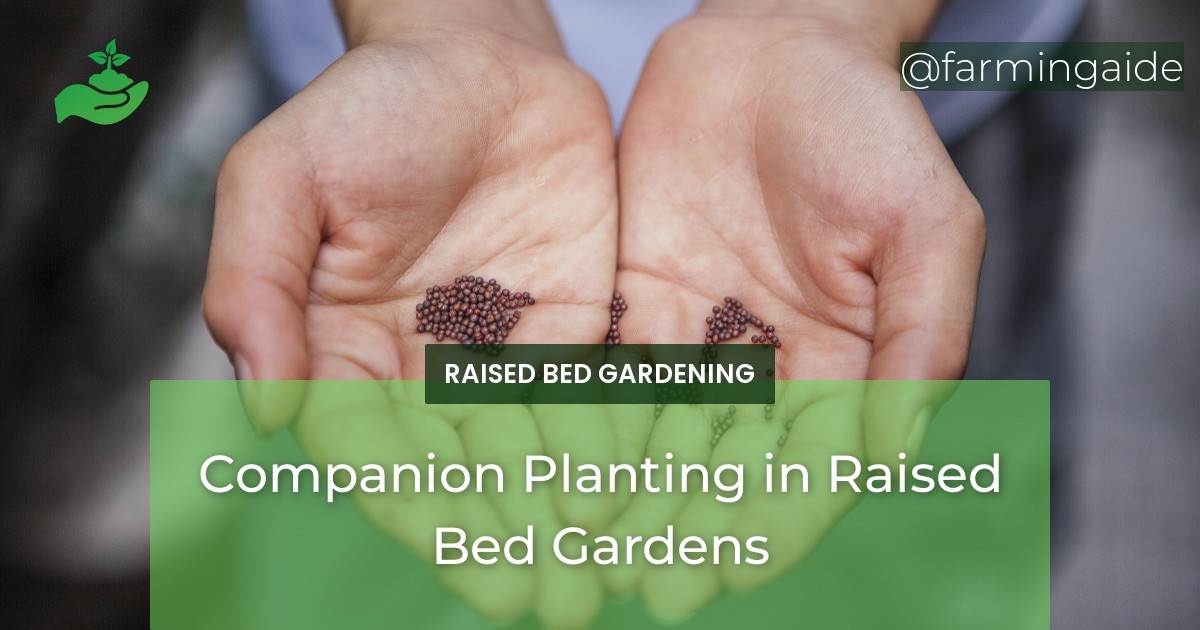Companion planting is the practice of planting different crops together to achieve mutual benefits. Raised bed gardening provides an ideal environment for companion planting. It is not only space-efficient, but also improves soil quality, eliminates weeds, and allows for better drainage. In this article, we will explore the benefits of companion planting in raised bed gardens and examine some compatible plant combinations for raised beds that will enhance your gardening experience.
Table of Contents
Benefits of Companion Planting
Increased Biodiversity
Companion planting in raised bed gardens increases biodiversity. Planting different crops together helps to create a diverse ecosystem that attracts beneficial insects and organisms. This, in turn, creates a natural balance that reduces the spread of diseases and pests.
Improved Soil Health
Companion planting helps to improve soil health in raised bed gardens. Different plants have different nutrient requirements, and planting them together helps to ensure that the soil is rich in a variety of nutrients. Companion planting also helps to reduce soil erosion, improve soil structure, and increase soil fertility.
Pest Control
Companion planting in raised bed gardens can help to control pests. Certain plants have natural pest-repelling properties that are enhanced when planted together. Additionally, planting crops with different heights and growth habits can create a barrier that makes it difficult for pests to access your plants.
Maximizing Garden Space
Companion planting in raised bed gardens is an effective way to maximize garden space. Planting crops together that have different growth habits can help to optimize space. For example, planting a tall crop next to a low-growing crop can help to maximize vertical space.
Compatible Plant Combinations for Raised Beds
Beans, Peas, and Nasturtiums
Beans and peas are nitrogen-fixing crops that help to enrich the soil with nitrogen. Nasturtiums, on the other hand, help to repel aphids, squash bugs, and beetles. Planting these crops together in raised beds is a great way to improve soil quality and deter pests.
Tomatoes, Basil, and Onions
Tomatoes, basil, and onions are compatible plants that grow well together in raised beds. Tomatoes and basil have a symbiotic relationship that enhances their flavor and growth. Onions, on the other hand, help to deter pests and improve soil quality.
Carrots, Radishes, and Lettuce
Carrots, radishes, and lettuce are an excellent combination for raised bed gardens. Radishes help to repel pests and improve soil quality, while carrots and lettuce have shallow roots that grow well together. Planting these crops together can help to optimize your garden space and create a diverse ecosystem.
Squash, Corn, and Beans
Squash, corn, and beans are known as the “Three Sisters” and have been planted together for centuries. This trio of plants has a symbiotic relationship that benefits all three crops. The beans provide nitrogen to the soil, the squash acts as a natural mulch, and the corn provides shade and support for the beans to climb.
ALSO READ
Pest Control through Companion Planting
Deterrence of Pests
Companion planting in raised bed gardens helps to deter pests by confusing them with different scents and flavors. Certain plants, such as marigolds and garlic, have natural pest-repelling properties and can be planted alongside your crops to deter pests.
Attraction of Beneficial Insects
Companion planting in raised bed gardens can attract beneficial insects that help to pollinate your plants and control pests. Plants such as dill, fennel, and parsley attract beneficial insects such as ladybugs and lacewings, which prey on harmful insects.
Repelling Harmful Insects
Companion planting in raised bed gardens can also help to repel harmful insects. For example, planting mint alongside your crops can help to repel ants, aphids, and flea beetles. Similarly, planting chives can help to repel Japanese beetles and carrot flies.
Conclusion
Companion planting in raised bed gardens is an effective way to improve soil quality, reduce pests, and maximize garden space. By planting compatible crops together, you can create a diverse ecosystem that attracts beneficial insects and organisms and reduces the spread of diseases and pests. So, the next time you plan your raised bed garden, consider companion planting and enjoy a bountiful harvest.
RELATED ARTICLES:


